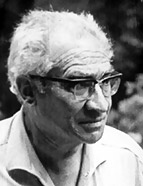

His intellectual and political activities drew increasing attention from the PIDE, leading to his dismissal from the Colégio Tomás Ribeiro in 1961 and a brief imprisonment in Aljube in 1962. Prevented from continuing his teaching career and aware of an imminent arrest, he made the difficult decision to go into exile. This marked the beginning of a new chapter in his life in December 1965, one that took him to several countries. After a brief stay in Paris, he travelled to Algiers to join the FPLN nucleus. Disagreements with other members of the FPLN led him to spend a few months in Bucharest in 1967, where his son was also in exile. However, it was in Prague, in November of that same year, that he settled for a few years with his wife. Two significant events occurred during his time in Prague. The first was his debut as a university lecturer, having been invited to serve as a reader in Portuguese Language and Culture at Charles University in Prague. The second was tied to the political climate: he experienced the optimism of the Prague Spring, as well as its violent suppression by Warsaw Pact troops. Already at odds with the Portuguese Communist Party (PCP), he could not reconcile how a party that opposed the Salazarist regime's repression could support the Soviet intervention. During a solemn meeting with other Portuguese exiles who shared his position, he was expelled from the PCP by Álvaro Cunhal for refusing to change his stance. Flausino Torres found himself in a precarious position: an opponent of the Salazar regime living in exile, but also ostracised by the PCP.
In this challenging situation, he decided to take advantage of the so-called Primavera Marcelista ("Marcellist Spring") to attempt a return to Portugal, which he achieved in June 1970. He returned to Tondela, by then over 64 years of age and suffering from health problems. The PCP's anathema meant that few of his former friends visited him in Tondela. However, this did not deter him from continuing to write history. In fact, those final years were marked by the production of notable works on Portuguese history, such as História Contemporânea do Povo Português [Contemporary History of the Portuguese People] (1968–1973) and Portugal: uma perspectiva da sua História [Portugal: A Perspective on Its History] (1973). The first demonstrated that, even after being excluded by the PCP, he maintained his commitment to a historical approach centred on the people, dedicating himself once again to this perspective. The latter was a re-edition of a book first published in Prague for his students. Despite limited access to sources, its originality lay in his determination to focus once more on the people as the driving force of history, moving away from the traditional historiography centred solely on kings. Until the twilight of his life, his thinking remained steadfastly left-wing and Marxist, with an enduring commitment to highlighting the role of those often forgotten in history. A few months after the lightning moment of the 25th of April Revolution, he passed away in Tondela, a town that, since May 1974, had already honoured him by naming a street after him.
This work is financed by national funds through FCT - Foundation for Science and Technology, I.P, in the scope of the projects UIDB/04311/2020 and UIDP/04311/2020.
